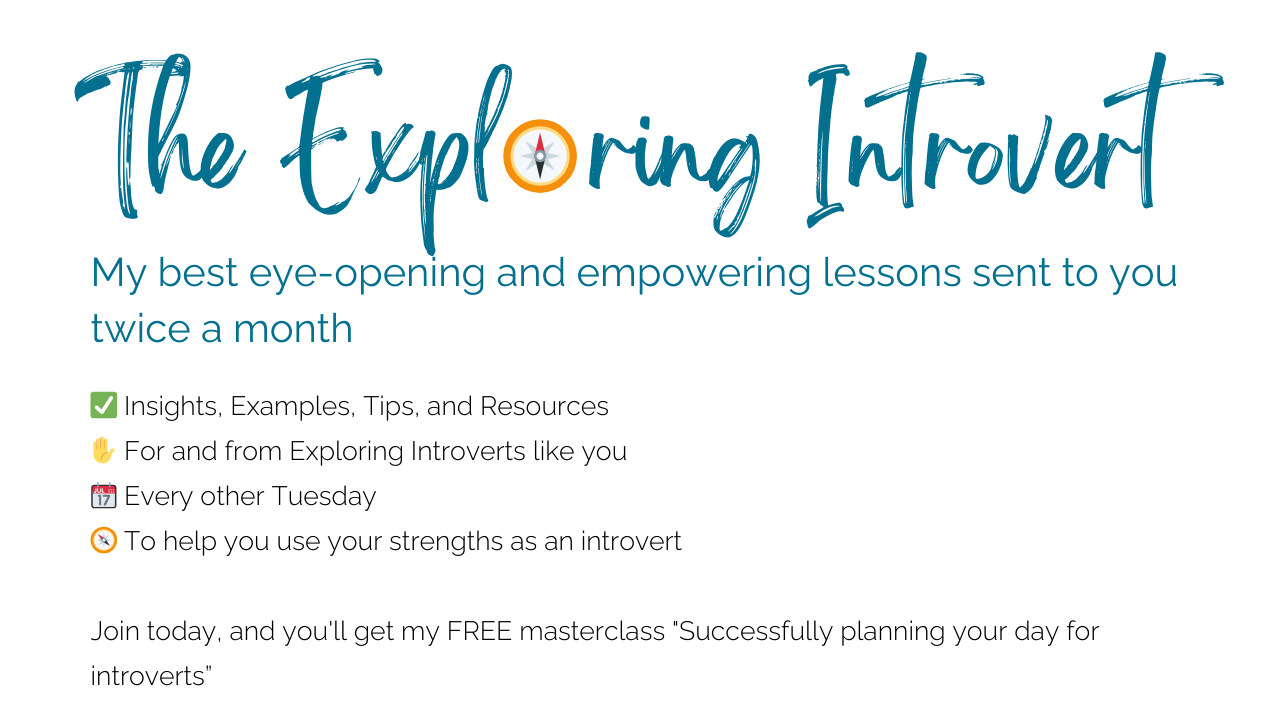-
I realized that improving my time management skills is important if I want to take 2 months off work each year.
-
Taking 2+ months off work each year has been a dream for a while. This year, I decided to start working on that dream.
-
This first year, I reduce my workload to 8 hours a week for 2 months.
-
I didn't do most of the things I planned but managed to take care of my clients as I normally would.
-
Learning how to tame the inner critic is key to stop beating yourself up, especially when things don't go according to plan.
-
It's normal to go through a transition disturbance when your rhythm changes.
Taking 2 months off work: year 1

For the past 2 months, I’ve been doing a little experiment. I decided to take a 2-month break from work during summer vacation. It’s been an ambition of mine to take off longer periods of time & this year I decided to test out this idea.
In short, things didn’t go exactly according to plan & taking a break from work off was quite a different experience than I expected.
But I did learn a lot about what I can potentially do in the future to really make it possible to take longer periods of time off from work!
In today’s chapter, I’ll share with you how taking this break from work went and what I learned about time management and energy management, specifically how to manage your time & energy when there are drastic changes in your rhythm.
Highlights
Full summary
Why worry about time management skills at all when you’re taking time off?
Well, if you’re like any of my clients, you probably have a bunch of things going on at any one time and your work is just one of those. Maybe you’re a caregiver, or you have kids or four-legged family members to take care of, maybe you’re looking to start your own business or grow an existing business. You probably have some hobbies and creative interests, people you want to stay in touch with, and - especially if you’re an introvert - there’s also that tricky subject of managing your energy well and making time for yourself.
Even when we take time off from our main business, short or long periods of time, other things still continue in the background. All of this takes energy and learning how to manage your time and your energy effectively is important whether you’re fully at work or not, so that when you take time off you can actually recharge yourself mentally, creatively, and also physically.
For me, my main business is coaching but I’m also a parent and co-founder of a local writer’s group. So, like many of my clients, aside from building my online business I can be working up to 15 big or small projects at a time. Oh, and then we also want to sleep, have alone time and give attention to friends and family…
If you’re still wondering why time management skills are important, I invite you to list all the things that you’re involved with on a weekly basis. Are there area’s where you’d like to improve and perhaps have more time and energy to spend on other things?
Taking a 2-month break from work
To be clear: I didn’t take off work completely. I continued to work with my 1-1 clients but I reduced my workload elsewhere. More about that later.
Overall, taking long periods of time off wasn’t something that I ever thought would be possible for me. When I worked in academia and as an editor and writer, the best I could imagine was taking an unpaid sabbatical “some day”, once I’d proven myself and climbed the corporate ladder. But it’s secretly been a dream of mine to take a longer period of time off each year. When I started my coaching business 3 years ago, I knew that was one of the things I’d work towards and this year was the first time I took the step.
The main reason to take a longer break from work is to have a quality of life that I can truly enjoy. So, I didn’t want to wait to explore this idea until I had help. I wanted to know what I would need to make it a reality right now and what I can learn if and when my circumstances change.
Learn what to focus on for a
no-discipline approach to habits,
no matter how busy or overwhelmed you are
Masterclass "Successfully planning your day for introverts: 3 eye-opening ideas to create no-discipline habits
** includes 40-minute masterclass, written transcript, and summary ebook **
The first experiment
I decided to approach it as an experiment and my main question was: What do I need to have in place so that I can take off 2+ months a year while my business continues working without me?
At the moment, I’m a solopreneur and I don’t have any employees or assistants to help me. I don’t know if I ever will. Right now, I plan to continue running my company as a solopreneur for the time being.
Like I said, I didn’t take off work fully for this first year but I made 2 main changes: 1) I took a break from the podcast that you’re listening to right now. I closed the last season in mid July and you’re now listening to the first episode of season 3 published mid September. And the second thing I did: I reduced my working hours from about 26 hours a week to about 8 hours a week.
This came to about 1 hour a day or 2 half days a week.
The idea was to continue the rest of my work: to continue working with my current clients, continue posting on social media, and I was even excited about testing out a few new ideas, like diving into YouTube shorts for the first time.
I made 2 main changes:
1) I took a break from the podcast. I closed the last season in mid July and you’re now listening to the first episode of season 3 published mid September.
2) I reduced my working hours from about 26 hours a week to about 8 hours a week.
What went well and what didn’t?
In a nutshell: except taking care of my coaching clients, I didn’t do most of the things I planned. There have been no social media posts, no YouTube shorts, I even struggled to keep up with my weekly newsletter, and for the first time in about 3 years I actually skipped sending an email one week.
So, what happened?
I’m not ashamed to admit that summer vacation with our 4 year old threw me for a loop, solo parenting for most of that time. Full honesty, I greatly underestimated how big the demand would be on my time and energy to spend that much time with a toddler.
As fun and sweet as they are, toddlers really never stop talking. And as a sensitive introvert who easily gets overstimulated, this was really demanding and it felt like I had no energy left at the end of the day, hell, sometimes at the start of the day, I had absolutely NOTHING left in me.
What did I learn?
An important thing to keep in mind is that a lot of introverts have a strong inner critic, that little voice in your head that likes to point out all the things that you’re doing wrong.
Introverts also spend a lot of time in their head, planning and thinking through things. This is a very natural part of how introverts process information.
If you’ve ever thought through 150 different scenarios, then you know what I’m talking about.
When things don’t go according to plan, this can activate the inner critic and a lot of introverts beat themselves up for not doing the things they said they were going to do.
In the past, my inner critic would say that I’m weak or a terrible parent for not being able to “handle” my own kid. I’d feel guilty and embarrassed and either “force myself” to do all the things anyway, which usually leads to complete energy depletion and burn out or decide that it’s not worth the effort only to feel even more guilty for procrastinating.
You can end up in an internal fight with the inner critic and this takes up a lot of energy. One of the reasons why introverts can feel so tired all the time, is when they don’t understand the inner critic and how to stop negative thought spirals.
As strange as it sounds, this is all very normal for both introverts and extroverts and most of the people I speak to experience this on some level.
We all struggle with the inner critic from time to time and in my coaching programs we take time to understand the strategies that the inner critic uses and practical ways to calm down that negative voice so it’s easier to take action and restore your trust in yourself.
What did I learn about time management?
When things around us shift, there’s this transition period when your rhythm changes. This can be a really tough period - I call it the transition disturbance.
For me during this 2-month break, my rhythm changed a lot going into the summer vacation and then after, when my son went back to school.
Outside of summer vacation, I roughly spend the mornings by myself and with clients one to one and spending afternoons with my husband and son and tending to our home and garden.
During summer vacation: most days were spent with my son and an hour of work either while he was watching a movie or in the evenings. One day a week, my in laws would take him on an outing for half a day or he’d go to daycare and I’d take client calls on those days.
This was the first time we’d had a big summer vacation and every parent I’ve spoken to has confirmed that it’s a doozy. Most of them said that there’s at least a 2 week period where it’s just chaotic.
The house is a mess, the parents are trying to figure out how to best entertain their kids while holding things together, the kids are busting loose or sometimes get overstimulated. It’s just chaos all around.
But, and here’s the good news, it gets better
The transition disturbance is a finite period of time, it doesn’t last forever. Eventually, you get the hang of the new rhythm. How long the transition disturbance lasts, depends on the personalities in your family and the exact transition that you’re going through. But on average, most examples I’ve seen are anywhere between 2 weeks and 3 months e.g. starting a new work out routine, a new job, or changing your eating habits.
On top of that: You only do something for the first time once.
Anytime you go through a transition disturbance, you learn what to keep an eye on to move through a similar transition more easily the next time.
The transition disturbance is a time period that you really have to treat differently in terms of time and energy management than other times.
It’s a time when you’re gathering information so that you can figure out what the new situation will be. Realize that the way things are going during the transition disturbance isn’t representative of how things will be later on. Even if things shift all over the place during this time, it’s okay and it’s really helpful to treat this as a time to observe and experiment a little.
Observing and treating things like an experiment is also a great way to calm down the inner critic. It also gives you time to get used to the new situation and it gives you space to decide what you want to do next.

